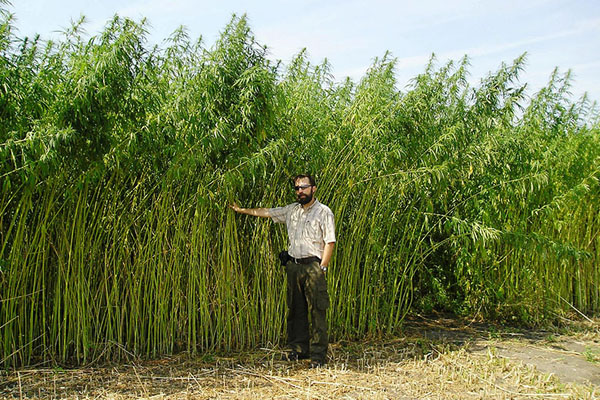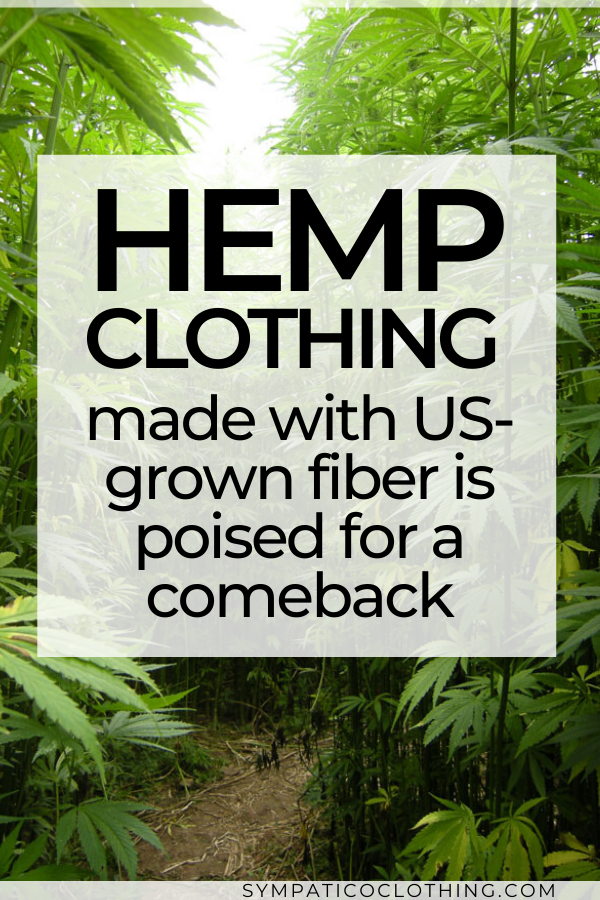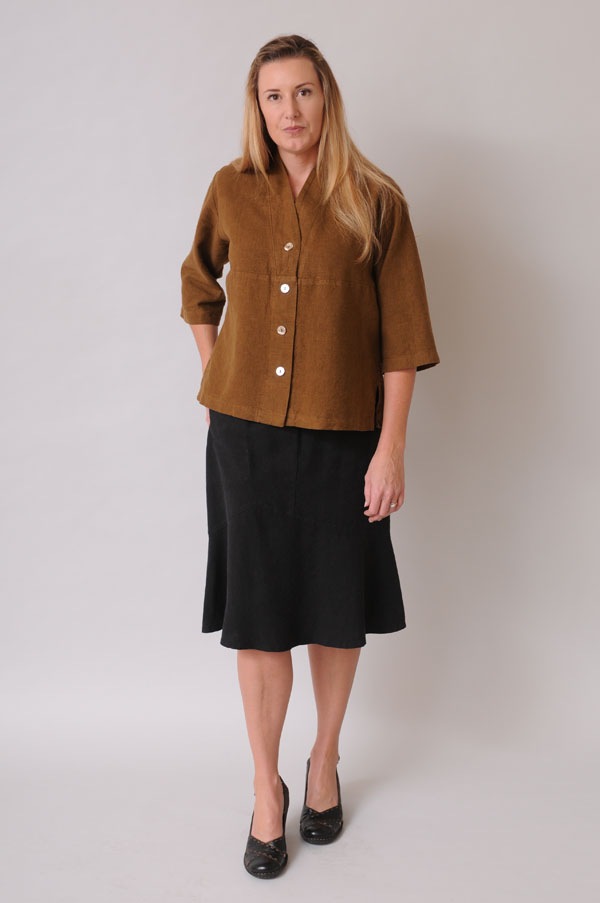Hemp clothing made with US-grown fiber is poised for a comeback
Posted by Rose on 11th Apr 2023
And as a womens hemp clothing maker, I can’t wait!
Hemp shares a collection of interesting traits with another valued fiber plant: flax, the plant linen comes from. It's the bark of both these plants that contains the cellulose ultimately spun into textile fibers. They both produce extremely durable fabrics that when spun into fine yarns can produce hemp and linen clothing that’s remarkably comfortable and sustainable.
I should note that in the case of Sympatico’s fabrics, I use a blend of hemp (55%), and Tencel (45%), a sustainably produced fiber, to achieve a wonderful drape that’s also easy care.
When cultivated for fiber, both hemp and flax are grown very densely so as to produce tall, slender stalks with minimal branches—their long strands of cellulosic material can be transformed into fine-quality fibers. These dense plantings choke out weeds, and being pest resistant, hemp and flax are typically grown without the use of herbicides or pesticides. The history of these two crops is similar as well: the linen shrouds in Egyptian tombs date back to roughly the same era as the earliest Chinese textiles made with hemp.

My hemp “connection,” Lawrence of Hemp Traders, in a fiber-hemp field. Note the very close plant spacing.
One more similarity holds out the promise for both hemp and flax crops having a significant future in the US and the world. Their cultivation, harvesting, and processing use similar farm implements and other machinery in readying hemp and flax for textile use. Because the agricultural and manufacturing infrastructure that historically existed in the United States for both fibers has been dismantled, the similarities in growing and processing the fibers may work in their favor. A comeback is possible. And in turn, a return to hemp clothing here in the U.S. could be in the cards! After all, at one time hemp clothing was common in America.
One other similarity shared by hemp and flax bears mentioning. Like hemp, some flax varieties are grown for their healthful seeds that are pressed to produce oils rich in valuable omega-3 fatty acids. These varieties are stockier than plants grown for fiber and not so densely planted.
Here in Southern Oregon a third kind of hemp crop got most of the press coverage initially. These hemp plants were grown for their flowers that produce high quantities of CBD oil and differ from varieties cultivated for their nutritional seed oil. They too are generally planted further apart and are squatter and leafier than industrial hemp grown for its fiber. Widespread reports of hemp crop failures due to poor timing, weather, and seeds with questionable genetics may have been contributing factors to collapse of that market.
By 2023, many farms had lost vast amounts of money due to a glut of CBD hemp. In 2020-2021, much of it was left in the fields to mold. Since then, there have been numerous raids on both licensed and unlicensed hemp farms that turned out to be growing THC-laden strains of hemp, usually with terrible environmental impacts.
Blended with 45% sustainable Tencel, hemp imparts a beautiful luster to this Tuxedo Top in Toffee and Flip Skirt in Black.
There are some promising developments concerning hemp and flax fibers and the possibility of making hemp clothing that's locally grown. A recent article in the Corvallis Advocate profiles Shannon Welsh, the founder of Pacific Northwest Fibershed. Shannon wants to connect clothing consumers directly with, as she puts it, “the biological context of their wardrobe.” Her organization supports and develops regenerative textile systems that are based in carbon farming practices—a focus close to my own convictions in starting up Sympatico as a hemp clothing maker. Her emphasis on interdependent local economies, artisanal producers, and organic agriculture are issues close to my own heart.
With a dawning recognition of how conventional modern agriculture is failing us, efforts like those of Pacific Northwest Fibershed as well as the work Winona LaDuke is doing with industrial hemp are far more than tilting at environmental windmills. They signal the beginning of a new era in which conscious consumption and appreciation for our interdependence are the new norm.

Share:






